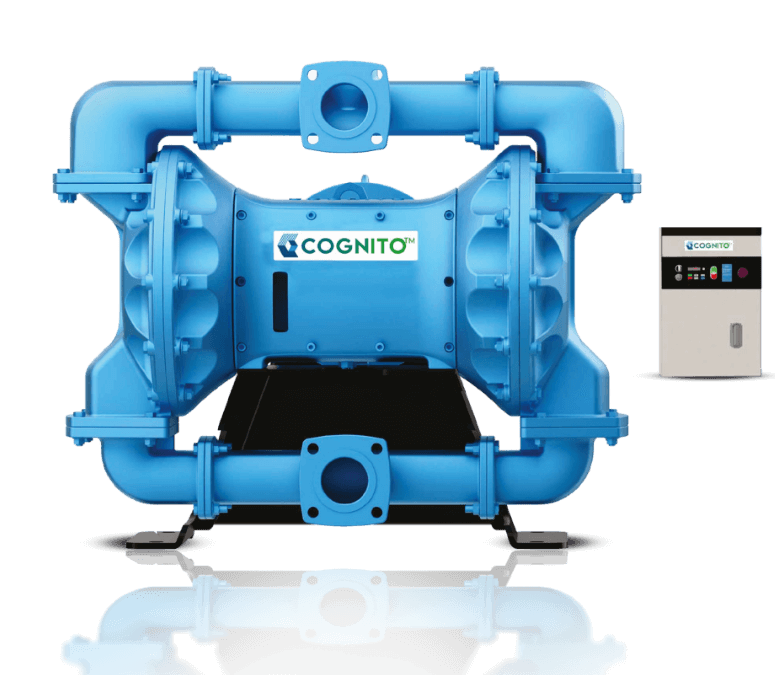API 675 Metering Pump with a Hydraulic Diaphragm: A Comprehensive Overview
 |
| API 675 Metering Pump with a Hydraulic Diaphragm: A Comprehensive Overview |
When it comes to
precision and reliability in fluid handling, metering pumps are known to
deliver. The API 675
metering pump with a hydraulic diaphragm is a standout solution among
metering pumps. It is designed for demanding applications. Industries that adhere
to stringent performance, safety, and dependability guidelines the API 675
metering pumps. These include
·
Oil
and gas
·
Chemical
processing
·
Water
treatment
·
Power
generation
What are API
675 Standards?
API stands for
American Petroleum Institute. The API 675 standard covers requirements for
making controlled volume pumps and pump units for use in services across
industries such as:
·
Petroleum
·
Petrochemical
·
Gas
Everything from
the design, construction, and performance criteria for reciprocating positive
displacement pumps are included. When a metering pump is certified as per API
675, the operators can be assured of its:
·
Precision
·
Reliability
·
Safety
Key
requirements of API 675
In order to meet
the API 675 criteria, the pump must offer these features –
- Accurate flow control – Industries such as oil
& gas, water treatment and gas require precise dosing with almost no
deviation. Therefore, API 675 pumps must offer precise flow control.
- Strength to handle challenging conditions – API
675 pumps are designed to handle extreme temperatures and pressures and
work with corrosive and abrasive fluids.
- Safety – Like every reputed standard, API 675
ensures that the certified pumps are safe. They are designed to minimise
the risk of failure or leakage.
API 675
Metering Pump with a Hydraulic Diaphragm
A hydraulic
diaphragm metering pump uses a flexible diaphragm to move liquids with a very
high accuracy. By moving back and forth, the diaphragm changes the volume of
the pump’s chamber to increase and decrease pressure on the fluid inside.
Hydraulic diaphragm metering
pumps are a notch above conventional pumps because they offer safe,
leakproof operation. This capability is especially desired by industries which
handle toxic, corrosive, or hazardous fluids.
Advantages
of Hydraulic Diaphragm Metering Pumps
·
They
are safe - Hydraulic diaphragm metering pumps are leakproof and minimise
contamination or environmental risks.
·
They
are versatile – These pumps can pump various kinds of liquids, including
corrosive, viscous, and slurry materials, making them truly versatile.
·
They
are low maintenance - Hydraulic
diaphragm metering pumps have fewer moving parts, which means less wear
and tear, leading to lower maintenance costs and downtime.
·
They
are durable – These pumps are made of durable material which can handle
challenging conditions. This, coupled with a simple design, enhances the pump’s
lifespan.
Industries
that require API 675
·
Oil
and Gas: API 675
metering pumps can handle the most corrosive fluids, making them ideal for the
oil and gas industry, which has applications that require corrosion inhibition
and scale control.
·
Chemical
Industry: Chemical
companies require precise dosing to carry out their processes. API 675 metering
pumps are designed to offer precise dosing, making them ideal for the chemical
industry.
·
Water
Treatment: API 675
metering pumps are also popular in water treatment processes because of their
precise dosing capabilities.
Pulsafeeder
– Delivering metering technologies for decades
IDEX Pulsafeeder has
been around for more than 70 years now. In recent years, it has delivered
industrial equipment, including diaphragms, chemical injection packages, dosing
skids, and plunger pumps. All Pulsafeeder pumps are API-675 compliant and built
to last for years.
·
Pulsa
Series Metering Pumps
These API
675-compliant pumps are built to offer consistent performance and promise
long-term service. They feature a manual stroke adjustment mechanism, three
hydraulic valves, a flat diaphragm, and precision check valves. These pumps
also offer 5-year warranties. The pumps under this series can handle pressures
up to 345 Bar and temperatures between -29 to 121 degrees Celsius. The Pulsar
series can pump liquids in the 0.1 to 1000 cP viscosity range.
·
Pulsa
Pro Series
The API
675-compliant metering pumps under this series feature a four-bolt check valve
design, hydraulic bypass valve, hydraulic performance valve, sealed gearbox
design and a patented modular drive train. These pumps have a five-year train
warranty. These reliable pumps feature an API 675-compliant hydraulically
actuated diaphragm design. Materials such as alloys, PTFE single and Monel
ensure the pumps are built for durability. The pumps in this series can handle
pressures up to 220 Bar and temperatures between 29 to 121 °C.
While selecting
the right API 675-compliant metering pump, one should go for a reputed brand
that has been operational for a long time. Pulsafeeder has been a leader in the
diaphragm and dosing metering technologies for decades now. Their team of
experts work alongside clients to offer them the best-in-class service, from
the moment an order is placed till the entire operational duration of the
pumps. Every client is offered customised solutions based on their unique
requirements.
To learn more about Pulsafeeder metering pumps, please visit their website - https://www.idexindia.in/pulsafeeder/.



Comments
Post a Comment